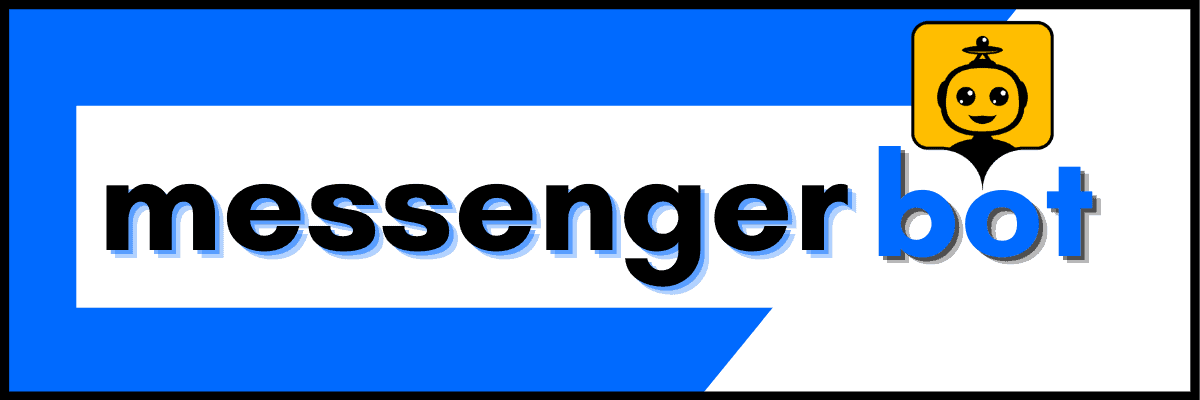Key Takeaways
- WhatsApp message bots enhance communication by automating responses, improving user engagement, and providing real-time support.
- Businesses can leverage the WhatsApp Business API to create sophisticated chatbots tailored to customer needs.
- Free WhatsApp message bot solutions exist but often come with limitations; upgrading may be necessary for advanced features.
- Safety is crucial; users should be cautious about sharing personal information and ensure compliance with data protection regulations.
- Popular platforms like Twilio, Brain Pod AI, and Zapier offer robust tools for creating and managing WhatsApp bots effectively.
In today’s fast-paced digital landscape, WhatsApp message bots have emerged as a powerful tool for enhancing communication and automating interactions. This article delves into the myriad benefits of utilizing a WhatsApp bot, exploring how these innovative chatbots for WhatsApp can streamline messaging and improve user engagement. We will answer pressing questions such as, “Can bots message you on WhatsApp?” and “Are WhatsApp bots safe?” while providing insights into the various options available, including free WhatsApp message bot solutions. Additionally, we will guide you through the process of automating your WhatsApp messages, highlighting essential tools and software that can facilitate this transition. As we navigate through the features of popular WhatsApp chatbots and discuss privacy settings, you’ll gain a comprehensive understanding of how to leverage these bots effectively. Join us as we uncover the potential of chat bot on WhatsApp and equip you with the knowledge to enhance your messaging experience.
Can bots message you on WhatsApp?
Understanding WhatsApp Bots and Their Functionality
Yes, bots can message you on WhatsApp, primarily through the WhatsApp Business Platform. This integration allows businesses to utilize the WhatsApp Business API to automate responses, handle customer inquiries, and send marketing messages efficiently. The API is specifically designed for medium to large businesses, providing a robust framework for customer interaction.
Chatbots on WhatsApp can perform various functions, including:
- Answering frequently asked questions (FAQs) to provide instant support.
- Collecting initial customer data to streamline service.
- Sending automated notifications, reminders, and promotional messages.
It’s important to note that chatbots cannot be used with the free WhatsApp Business App; the API is essential for businesses looking to implement automated messaging solutions. When interacting with a WhatsApp bot, users can expect a conversational experience, where the bot understands and responds to queries in real-time, enhancing customer engagement and satisfaction.
For further reading on the integration of chatbots in messaging platforms, refer to the official WhatsApp documentation and industry insights from sources like HubSpot and Gartner.
How Bots Interact with Users on WhatsApp
The interaction between users and bots on WhatsApp is designed to be seamless and user-friendly. When a user initiates a conversation with a bot, they can expect a quick and efficient response. This interaction is facilitated through the WhatsApp Business API, which allows for various automated functionalities.
Key aspects of bot interaction include:
- Conversational Flow: Bots are programmed to maintain a natural conversational flow, making it easier for users to engage without feeling overwhelmed.
- Personalization: Bots can tailor responses based on user data, enhancing the relevance of the interaction.
- Real-Time Support: Users receive immediate assistance, which is crucial for maintaining customer satisfaction.
Businesses must ensure compliance with WhatsApp’s policies regarding user consent and messaging frequency to avoid being flagged for spam. Proper implementation of chatbots can lead to improved customer service and operational efficiency. For those interested in creating a WhatsApp bot, resources like this guide can provide valuable insights.

Is there any WhatsApp chat bot?
Yes, there are several WhatsApp chatbot tools available that can enhance customer communication and automate interactions. Here are some of the best platforms:
- BotsCrew: This AI-driven chatbot platform specializes in WhatsApp integration, allowing businesses to create customized chatbots that can handle customer inquiries, provide support, and facilitate transactions. BotsCrew focuses on improving customer engagement and streamlining communication across multiple channels, including WhatsApp, Facebook, Instagram, and SMS.
- Tidio: Tidio offers a user-friendly interface for building chatbots that can be integrated with WhatsApp. It provides features like live chat, automated responses, and customer segmentation, making it easier for businesses to manage customer interactions effectively.
- Chatfuel: While primarily known for Facebook Messenger bots, Chatfuel also supports WhatsApp integration. It allows users to create conversational experiences without coding, making it accessible for businesses of all sizes.
- Landbot: This platform enables the creation of conversational chatbots for WhatsApp with a focus on user experience. Landbot’s visual builder allows businesses to design interactive chat flows that can engage users effectively.
- ManyChat: ManyChat is another popular platform that supports WhatsApp chatbots. It offers automation tools that help businesses engage with customers through personalized messaging and targeted campaigns.
- Twilio: Twilio provides a robust API for building WhatsApp chatbots, allowing developers to create highly customized solutions. It is ideal for businesses looking for flexibility and scalability in their chatbot applications.
- WhatsApp Business API: For larger enterprises, the WhatsApp Business API offers a powerful solution for creating chatbots that can handle high volumes of messages and provide advanced customer support features.
These tools leverage the growing trend of conversational commerce and customer service automation, making it essential for businesses to adopt chatbots to stay competitive. For more information on the effectiveness of chatbots in customer engagement, refer to studies from sources like Harvard Business Review and Gartner, which highlight the increasing reliance on AI-driven communication tools in modern business strategies.
Popular WhatsApp Bots and Their Features
When exploring WhatsApp chatbots, it’s important to consider their unique features that cater to different business needs. Here are some popular options:
- WhatsApp Business Bot: This bot is designed specifically for small and medium-sized businesses, allowing them to automate responses to frequently asked questions, send notifications, and manage customer inquiries efficiently.
- Brain Pod AI: Known for its advanced capabilities, Brain Pod AI offers a multilingual AI chat assistant that can be integrated with WhatsApp, enhancing customer interactions through natural language processing.
- Zapier Integrations: With Zapier, businesses can connect WhatsApp with various apps to automate workflows, making it easier to manage customer communications across platforms.
- ManyChat: This platform not only supports WhatsApp but also provides tools for creating engaging marketing campaigns through automated messaging, making it a versatile choice for businesses.
By leveraging these WhatsApp chatbots, businesses can enhance their customer service, streamline operations, and ultimately drive better engagement with their audience.
Is using a WhatsApp bot free?
Using a WhatsApp bot can be free to some extent, but there are important considerations to keep in mind. Here’s a detailed breakdown:
- Free Platforms: You can create a basic WhatsApp bot at no cost using platforms like Engati, Chatfuel, or ManyChat. These platforms often offer free tiers that allow you to set up simple bots without coding skills.
- Limitations of Free Versions: While starting is free, these platforms typically impose limitations on features, such as the number of messages you can send, the complexity of the bot, and access to advanced functionalities. For instance, you may need to upgrade to a paid plan for features like analytics, integrations, or increased message limits.
- API Costs: The WhatsApp Business API, which is required for more advanced bots, is not free. Businesses using the API must pay for message delivery, which can vary based on the destination country and the type of message sent (session messages vs. template messages). Pricing can be found on the official WhatsApp Business website.
- Additional Features: If you want to integrate your WhatsApp bot with other services or require advanced capabilities (like AI-driven responses), you may incur additional costs. Many platforms charge for premium features that enhance the bot’s functionality.
- Consideration of Alternatives: While WhatsApp bots are popular, you might also explore Messenger bots, which can offer different pricing structures and features. However, the choice between platforms should depend on your specific business needs and target audience.
In summary, while you can start creating a WhatsApp bot for free, be prepared for potential costs associated with advanced features and API usage. For more detailed information, refer to the WhatsApp Business API documentation and the pricing pages of bot-building platforms.
Cost-Effective Solutions for WhatsApp Bots
When considering cost-effective solutions for WhatsApp bots, it’s essential to evaluate various options that can provide value without breaking the bank. Here are some strategies:
- Utilize Free Trials: Many platforms offer free trials that allow you to test their features before committing to a paid plan. This can help you determine if the platform meets your needs without any initial investment.
- Choose the Right Platform: Platforms like Brain Pod AI provide affordable options for creating a WhatsApp bot. Their pricing is competitive, and they offer various features that can enhance your bot’s capabilities.
- Leverage Open Source Solutions: Consider open-source frameworks for building your WhatsApp bot. These can be cost-effective as they often require no licensing fees, but you may need technical expertise to set them up.
- Focus on Essential Features: Start with a basic bot that addresses your core needs. As your business grows, you can gradually add more features and functionalities, allowing you to manage costs effectively.
- Monitor Usage: Keep track of your bot’s performance and user interactions. This can help you identify areas where you can optimize and reduce costs, such as limiting unnecessary messages or interactions.
By exploring these cost-effective solutions, you can successfully implement a WhatsApp bot that meets your business needs while staying within budget. For more insights on creating effective bots, check out our guide on creating your own AI chatbot.
Is it possible to automate WhatsApp messages?
Yes, it is possible to automate WhatsApp messages using various tools and platforms designed for this purpose. Here’s a comprehensive guide on how to do it effectively:
- Choose the Right Automation Tool: Several platforms offer WhatsApp automation capabilities, including Brevo (formerly Sendinblue), Twilio, and Zapier. These tools allow you to create automated workflows that can send messages based on specific triggers.
- Set Up Your WhatsApp Business Account: To use automation features, you must have a WhatsApp Business account. This account provides access to the WhatsApp Business API, which is essential for automation.
- Create and Approve Your Message: Once you have your automation tool set up, you can create your WhatsApp message. Ensure that your message complies with WhatsApp’s policies and is approved by Meta. This step is crucial as it ensures your messages are not flagged as spam.
- Design Your Automation Workflow: In your chosen automation platform, navigate to the automation section. For instance, in Brevo, you can click on “Create an automation” and select the “Send a WhatsApp message” action. You can set triggers such as user sign-ups, inquiries, or specific dates to initiate the message.
- Test Your Automation: Before going live, it’s important to test your automation to ensure that messages are sent correctly and at the right times. This helps to identify any issues and refine your messaging strategy.
- Monitor and Optimize: After launching your automation, monitor its performance. Analyze metrics such as open rates and engagement to optimize your messages and workflows continuously.
For more detailed guidance, refer to the official documentation of your chosen automation tool, such as the Brevo Help Center. Additionally, consider reviewing the WhatsApp Business API documentation for best practices and compliance guidelines.
Tools and Software for WhatsApp Message Automation
When it comes to automating WhatsApp messages, several tools stand out for their features and ease of use:
- Twilio: Twilio offers a robust WhatsApp API that allows businesses to send automated messages, notifications, and alerts seamlessly.
- Zapier: With Zapier, you can connect various apps and automate workflows, including sending WhatsApp messages based on triggers from other platforms.
- Brevo: Known for its user-friendly interface, Brevo allows you to create automated messaging campaigns that can be tailored to your audience’s needs.
- Brain Pod AI: This platform provides advanced AI capabilities for creating chatbots that can interact with users on WhatsApp, enhancing customer engagement.
By leveraging these tools, you can effectively implement a WhatsApp message bot free solution that streamlines your communication and improves user experience.

Are WhatsApp Bots Safe?
When considering the use of a WhatsApp message bot, safety is a paramount concern for users. Understanding the potential risks associated with chatbots for WhatsApp is essential to ensure a secure messaging experience. Here are some key considerations regarding the safety of WhatsApp bots:
Security Measures for WhatsApp Bots
- Data Privacy: WhatsApp bots often require access to personal information to function effectively. Users should be cautious about sharing sensitive data, as this information may be stored on servers that could be vulnerable to hacking. According to a report by Bitdefender, oversharing with AI chatbots can lead to data breaches, where cybercriminals exploit stored information.
- End-to-End Encryption: WhatsApp employs end-to-end encryption, which means that messages are only visible to the sender and recipient. However, this encryption does not extend to the bot’s processing of data. If a bot collects and stores data, it may not be protected by this encryption, potentially exposing user information.
- Bot Security Measures: Not all WhatsApp bots are created equal. Some may have robust security protocols, while others may lack adequate protection. It is essential to use bots from reputable developers who prioritize user security and data protection.
Evaluating the Safety of Using Bots in WhatsApp
- Phishing Risks: Users should be wary of bots that ask for personal information or direct them to external links. These could be phishing attempts designed to steal sensitive data. Always verify the authenticity of the bot before engaging.
- Regulatory Compliance: Ensure that the bot complies with data protection regulations, such as GDPR or CCPA, which mandate how personal data should be handled. Bots that adhere to these regulations are generally safer to use.
In conclusion, while WhatsApp bots can enhance user experience, they come with inherent risks. Users should exercise caution, limit the information shared, and choose bots from trusted sources to mitigate potential security threats. For further reading on data privacy and chatbot security, refer to resources from cybersecurity experts like Bitdefender and the Electronic Frontier Foundation.
Can strangers message you on WhatsApp?
Yes, strangers can message you on WhatsApp if they have your phone number. WhatsApp operates on a phone number-based system, which means that anyone who has your number can potentially contact you through the app. Here are some key points to consider regarding this feature:
- Discoverability: When you register on WhatsApp, your phone number becomes discoverable to other users. This allows anyone with your number to send you messages, similar to how SMS works.
- Privacy Settings: WhatsApp provides privacy settings that allow you to control who can see your profile picture, status, and last seen information. You can adjust these settings to limit visibility to your contacts only, which can help reduce unsolicited messages from strangers.
- Blocking Unwanted Contacts: If you receive messages from unknown numbers, you have the option to block these contacts. This prevents them from sending you further messages and can enhance your overall experience on the platform.
- Scams and Suspicious Messages: Be cautious of messages from unknown users, as they may be attempts at phishing or scams. WhatsApp has a dedicated help center that provides guidance on how to recognize and report suspicious messages.
- Messenger Bots: While WhatsApp primarily connects users through personal messaging, businesses can utilize WhatsApp Business accounts to interact with customers via automated Messenger Bots. These bots can send messages to users who have opted in, but they do not apply to personal accounts.
For more detailed information, you can refer to the WhatsApp Help Center, which offers comprehensive guidelines on privacy and security measures: WhatsApp Help Center.
Privacy Settings and Strangers on WhatsApp
To enhance your privacy on WhatsApp, it’s essential to understand and utilize the available privacy settings effectively. Here’s how you can manage your interactions with strangers:
- Profile Privacy: You can set your profile picture, status, and last seen visibility to “My Contacts” or “Nobody,” ensuring that only selected individuals can view your information.
- Two-Step Verification: Enabling two-step verification adds an extra layer of security to your account, making it harder for unauthorized users to access your information.
- Report and Block: If you receive unwanted messages from strangers, you can easily block or report the contact directly through the app, which helps maintain a safer messaging environment.
By taking these steps, you can significantly reduce the chances of receiving unsolicited messages and enhance your overall experience on WhatsApp.
Managing Incoming Messages from Unknown Contacts
Managing messages from unknown contacts is crucial for maintaining a positive experience on WhatsApp. Here are some strategies to consider:
- Use WhatsApp Business: If you’re a business, consider using WhatsApp Business to interact with customers. This allows you to set automated responses and manage customer inquiries more effectively.
- Engage with Caution: If you choose to respond to messages from unknown contacts, do so cautiously. Avoid sharing personal information until you verify the identity of the sender.
- Utilize Chatbots: Implementing a WhatsApp chatbot can help manage interactions with users who opt-in, providing automated responses and enhancing customer engagement without compromising your privacy.
By effectively managing incoming messages, you can create a safer and more enjoyable messaging experience on WhatsApp.
Best WhatsApp message bot
When it comes to enhancing communication on WhatsApp, selecting the right WhatsApp message bot can significantly improve user engagement and streamline interactions. Here are some of the top recommendations for WhatsApp bots that stand out in terms of features and usability.
Top Recommendations for WhatsApp Message Bots
- Twilio WhatsApp API: Twilio offers a robust WhatsApp bot API that allows businesses to create customized messaging solutions. With its extensive documentation and support, Twilio is ideal for developers looking to integrate a chatbot for WhatsApp into their applications. You can learn more about it on the Twilio WhatsApp API page.
- Brain Pod AI: Known for its advanced AI capabilities, Brain Pod AI provides a chatbot for WhatsApp that can handle various tasks, from customer support to lead generation. Their multilingual AI chat assistant is particularly useful for businesses targeting a global audience.
- Zapier: For those looking to automate workflows, Zapier offers integrations that can connect WhatsApp with other applications. This allows users to create automated responses and manage interactions seamlessly. Check out their WhatsApp integrations for more details.
- Messenger Bot: Our own platform, Messenger Bot, provides a user-friendly interface for creating WhatsApp chat bots. With features like automated responses and workflow automation, it’s perfect for businesses looking to enhance their messaging capabilities. Explore more about our features here.
Comparing Features of Leading WhatsApp Bots
When comparing chatbots for WhatsApp, consider the following features:
- Ease of Integration: Look for bots that can be easily integrated with existing systems. Twilio and Zapier excel in this area, providing comprehensive guides and support.
- Customization Options: The ability to tailor responses and workflows is crucial. Brain Pod AI and Messenger Bot offer extensive customization, allowing businesses to create unique user experiences.
- Support and Documentation: Robust support and clear documentation can make a significant difference in implementation. Twilio is known for its extensive resources, while Messenger Bot also provides tutorials to help users get started quickly.
- Cost-Effectiveness: Many businesses seek whatsapp message bot free options. While some platforms offer free trials, it’s essential to evaluate the long-term costs associated with each solution.
Choosing the right WhatsApp bot can transform how you engage with customers, making it essential to assess your specific needs and the features offered by each platform. For more insights on creating a WhatsApp chat bot, visit our guide on creating your own AI chatbot.




